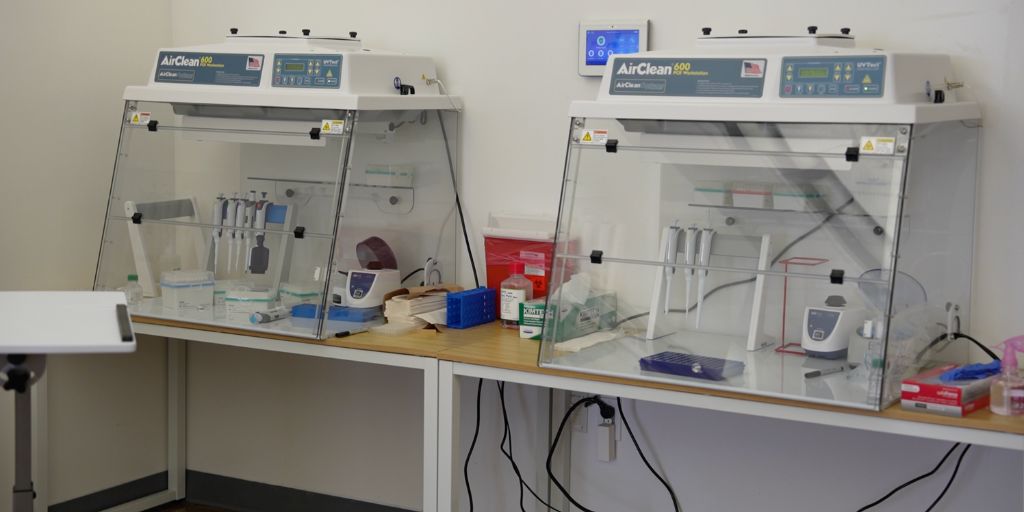
Biostate AI uses RNA sequencing, a snapshot of gene activity, to build AI models that accurately guide drug development, therapy selection, and personalized health predictions. The company has solidified its leadership in the development of domestic and global precision medicine solutions with the inking of three major collaborations in the U.S., China, and India. With a new joint venture and two multi-year research collaborations, Biostate AI has massively expanded the data pool for their RNA sequencing work, bringing the startup closer to fulfilling the promise of personalized medicine.
The company has established an Indian subsidiary, Bayosthiti, which collaborates with hospital systems in India and cancer hospitals including cancer and cardiovascular disease focused areas. This closely follows Biostate AI’s precision medicine joint venture with China’s Kindstar Global Gene Technology. It also mirrors the work Biostate AI has begun in the U.S. with Mass General Brigham (MGB) in developing an AI model to better monitor and deliver treatment for melanoma and other cancers.
Founded by former professors and repeat entrepreneurs David Zhang and Ashwin Gopinath, Biostate AI was founded on the principle that RNA is an underutilized real-time health biomarker, which can be supercharged with the right AI models. The company has also onboarded Prasad Chintamaneni, former President of Global Industries and Consulting for Cognizant, Ex-Managing Director and current Senior Advisor at New Mountain Capital, as an independent board member.
Not a paradox: Health is both hyper-local and global
Biostate AI has recognized a key feature of public health and has turned it into their strength. Health challenges like cancer, cardiovascular conditions, and autoimmune disease affect human beings across all nations. But the way those conditions manifest biologically and the way they’re treated pharmaceutically is generally location-dependent. Since its founding in 2023, Biostate AI has invented and patented over 12 technologies in RNAseq and AI, and has partnered with more than 100 different research groups across the United States. Now, with key partnerships in China and India, the company has brought data from the two most populous nations on Earth into the fold.
India: Bayosthiti, Biostate AI’s Indian subsidiary, focuses on developing precision cancer diagnostics specifically tailored to the Indian population through collaborations with hospital systems and cancer hospitals including cancer and cardiovascular disease focused areas.
Cancer remains India’s fastest-growing health challenge, with over 1.4 million new cases diagnosed annually. Although precision medicine has transformed cancer care globally, Indian patients often lack access to diagnostics tailored to their genetic profiles, relying instead on Western data. “Our technologies have been validated through collaborations with over 100 academic and biotech partners in the U.S., and now we’re applying these proven capabilities to India’s unique healthcare setting,” said Ashwin Gopinath, Co-founder and CTO of Biostate AI and former Professor at MIT. “Our confluence of advanced AI models and wet chemistry innovations gives us both a data advantage and the ability to generate insights that were previously impossible.”
China: In its work with Kindstar Global, Biostate AI gains access to a data trove gathered by a clinical diagnostics leader in China. The joint venture will transform Biostate AI’s advanced RNA sequencing and AI analysis platform to fit the Chinese population, optimizing it based on local disease profiles. The collaboration will initially focus on five high-prevalence specialties: autoimmune diseases, oral cancer, diabetes, lymphoma, and post-transplant care. “We’re thrilled to partner with Kindstar Global. As a leading specialty testing provider in China, their national clinical network of over 3,000 hospitals and deep market resources make them an ideal partner,” said David Zhang, Co-founder and CEO of Biostate AI.
A domestic and international spotlight on tumors
In its initial research collaboration with MGB, Biostate AI is focusing on melanoma immunotherapy. Specifically, the team’s work on immune-checkpoint inhibitors (ICIs) aims to make these therapies much safer and more effective.
While ICIs have transformed care, they are very expensive and many patients do not respond to treatment and risk severe immune-related adverse events. Current biomarkers, such as PD-L1 expression and tumor mutational burden (TMB), often misclassify responders, leaving clinicians without a reliable way to tailor therapy. “Our group has assembled thousands of paired tumor and blood specimens linked to detailed longitudinal outcomes,” said Dr. Genevieve Boland, MD, PhD, Associate Professor of Surgery at Harvard Medical School, Section Head of Melanoma/Sarcoma Surgery at MGB. “This collaboration allows us to unlock that data with Biostate AI’s platform.”
Biostate AI and MGB plan to eventually generalize a diagnostic model using MGB’s entire melanoma tumor biobank, creating an unparalleled dataset for model generalization and new biomarker discovery. The resulting model’s initial focus is melanoma, but the underlying platform is tumor-agnostic, opening the door to similar RNA-based AI tests in other cancers treated with checkpoint inhibitors.
Focusing on affordability and access
To benefit from the game-changing innovations biotech leaders like Biostate AI are helping develop, patients need to be able to afford and access them. Plus, whether patients and institutions can afford them or not, if molecular medicine solutions are not tailored to a specific population’s biology, they won’t experience the health benefits.
By lowering costs at the top of the medtech innovation funnel, Biostate AI and its collaborators aim to help the industry pass on savings to local health systems, hospitals, and patients. Biostate AI also hopes that, in helping deliver truly personalized precision medicine, patients can be spared the pain and financial burden that comes with the trial and error of many existing therapies.












